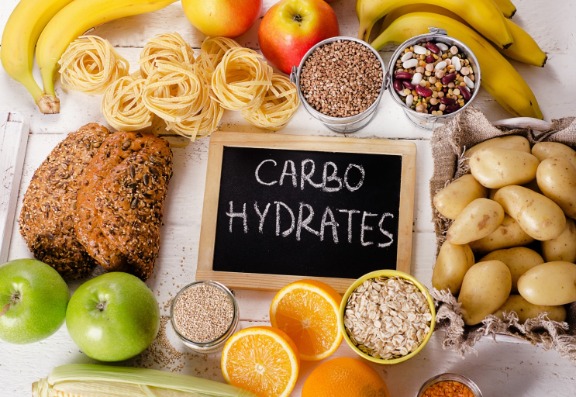For a long time, we have waged diet wars against fats believing that eating fat will make us fat. However, evidence now shows that it is in fact sugars and refined carbohydrates that cause us to pile on the pounds.
Not only do foods such as white bread, sweets and biscuits cause you to gain weight, but they have also now been shown to be physically addictive.
The rise in the availability of these foods has also led to a rise in the numbers seeking bariatric or weight loss surgeries such as gastric banding.
Scientists in New Zealand carried out a study which found that foods containing high amounts of refined sugar and flour have the same addictive qualities as tobacco.
'Heavily processed carbohydrates such as cornflakes, sweets and croissants quickly raise the amount of sugar in your blood,' explains lead researcher Dr Simon Thornley, a registrar with the Auckland Regional Public Health Service. 'This rush of sugar stimulates the same areas of the brain that are involved with addiction to nicotine and other drugs.'
Could carbohydrate addiction be to blame for your weight gain?
Studies of brain scans suggest that people who put on a lot of weight could be doing it to improve their mood; the same reason addicts take drugs.
This research shows that people with a high Body Mass Index (BMI) have fewer receptors in the part of their brains that generate pleasurable feelings.
The same pattern is evident in people addicted to cocaine and alcohol. As with any addiction, over time, addicts need more and more of their drug of choice to achieve the same effects which could explain the link between excess carbohydrate consumption and weight gain.

In one study, a group of overweight women were offered two drinks that appeared and tasted identical. However, one contained only sugary carbohydrates, such as dextrose and rice syrup, while the other had some protein added. First, they were made to feel depressed by thinking about something sad, when they were given the drink most of them preferred the pure carbohydrate drink reporting that it cheered them up. Experiments like these are regularly used to test if a drug is addictive.
Eating ‘high glycemic index’ foods causes a sharp spike in the blood sugar level causing changes in various chemicals and hormones, including insulin and an amino acid called tryptophan in the brain. This creates more serotonin, the brain chemical known as the ‘happy hormone’. Nicotine also raises serotonin levels explaining why high-sugar foods can give you a temporary 'lift' if you're feeling low or irritable – in the same way a cigarette does. It’s an instant hit ensuring a strong association between the drug of choice and that feeling.
Blood sugar explained:

The Glycaemic Index or Glycaemic Load (GI/GL) is a scientific rating of how quickly carbohydrate foods release sugar into our bloodstream.
‘Low GI’ foods, such as proteins and complex carbohydrates take longer to break down, providing the body with a steady supply of fuel over a longer period of time.
In real terms, this means we are satisfied for longer after a meal, we are less likely to suffer mood swings, and crave sweet foods and our bodies are less likely to store our food as fat.
Tips for Balancing your Blood Sugar
If you want to read more, the experts at Consulting Room really know what they're talking about and have put together fat and bariatric or weight loss FAQs just for you.
If you have more questions, you can use the fat and bariatric or weight loss questions feature to talk to our panel of trained medical experts.
If you're keen to get started with any of these treatments right away then you're in luck - those clever folks also have a list of trusted, accredited fat and bariatric or weight loss clinics in your area.
We thought we'd do our bit to increase awareness with 8 must-know facts.
Natura GLP is a 100 % natural weight-management solution with no prescription, no BMI check, and no side effects. Learn how it works, ingredients, dosing and benefits
Discover how Mounjaro works, its benefits, possible side effects and real patient results. Learn if you’re eligible and why many lose up to 22% body weight with this treatment.”
Hey, wait!
Before you go.....
Let's stay in touch, pop your details here and we'll send our editor's hand-picked updates on your fave subjects.